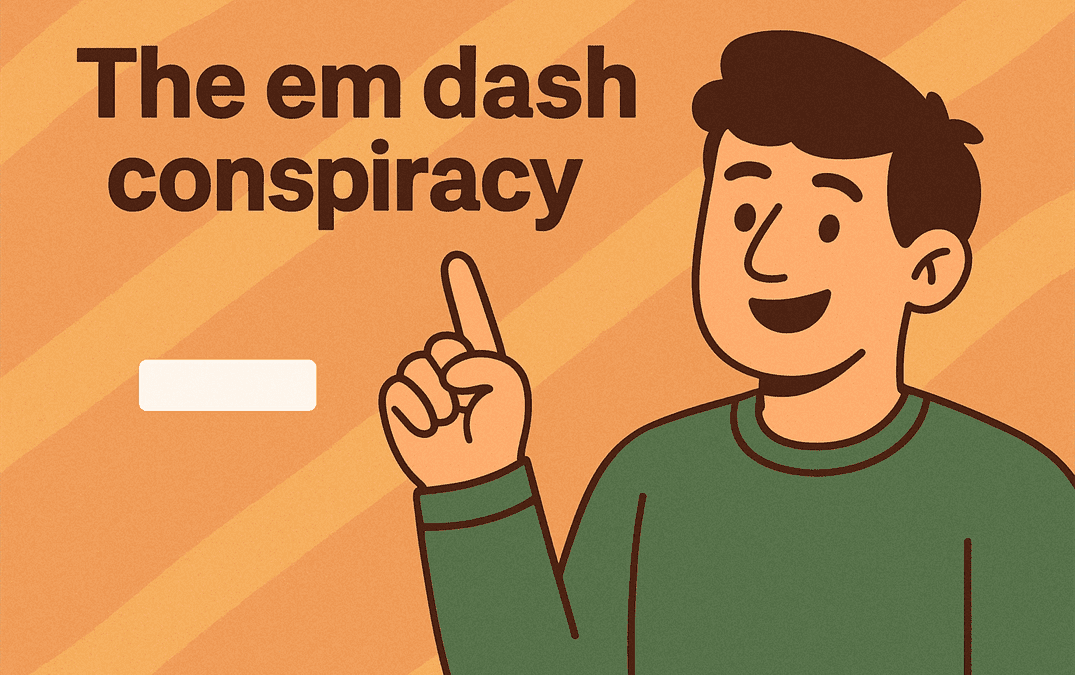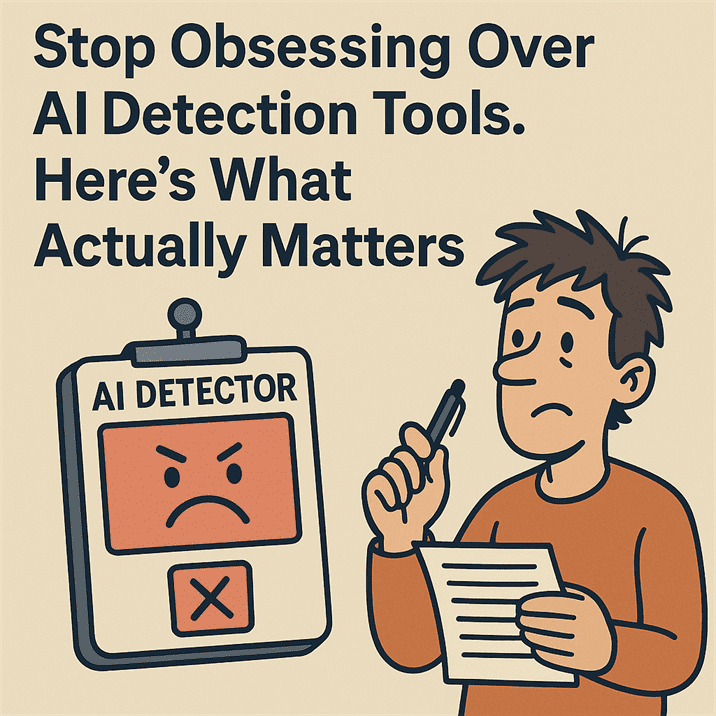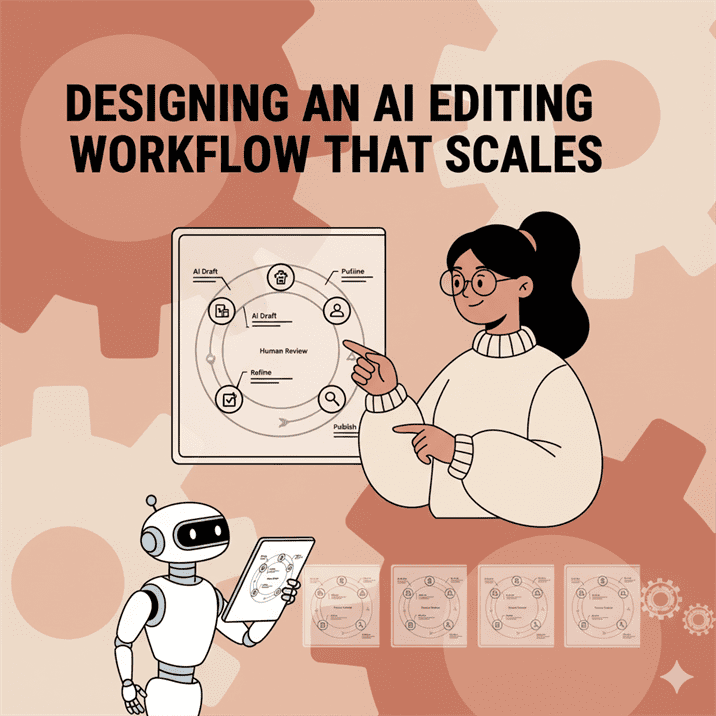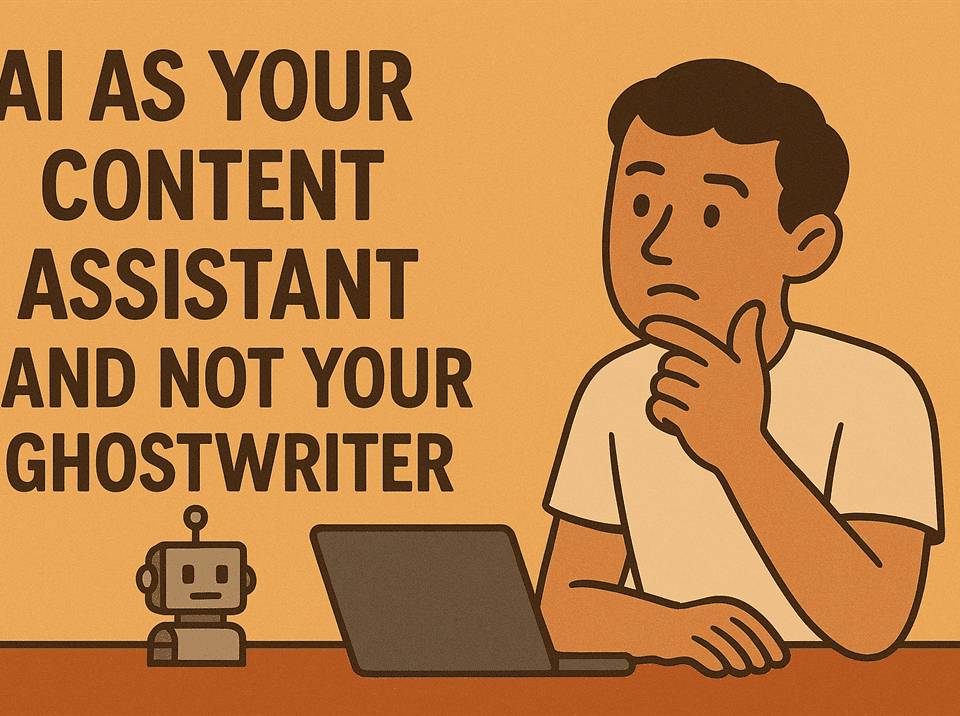The em dash conspiracy: How we started accusing punctuation of being AI

Ah, the em dash problem. Or as I like to call it: the “AI boogeyman in punctuation form.”
Somewhere between 2023 and now, a quiet paranoia took root in the collective writer brain.
People began squinting at sentences like detectives at a crime scene, searching for clues that the author wasn’t, well, a person.
“Hm,” they mutter, stroking an imaginary beard. “There’s an em dash here. And a phrase like in the realm of. Must be AI.”
Yes, Brenda, I too have read Hemingway. The man loved a dash like it was oxygen.
Why people see AI everywhere
Here’s the thing, we’ve been living in an age of machine mimicry. AI can now generate essays, art, breakup texts, and product descriptions for novelty cat socks, all in under a minute.
The result?
Everyone’s on high alert.
The irony is that we’ve built AIs to sound more human, and humans have responded by sounding more robotic in self-defence.
Writers now double-check every comma like it’s a lie detector test. “Would a human say thus? Wait, am I human?”
The paranoia makes sense, though.
When the internet floods with synthetic voices, people crave authenticity.
But instead of listening for emotion or perspective, you know, actual human markers, we’ve started relying on surface tics.
A certain phrase, a certain rhythm, a punctuation choice.
We’ve turned writing into a forensic exercise.
And to be fair, it’s easier to accuse a sentence of being AI than to admit that sometimes, machines just write better than we expected.
The myth of the ‘AI voice’
Let’s talk about this mysterious “AI voice.” People use it like a curse: “Ugh, this sounds like AI slop.”
But what do they actually mean? Too polished? Too balanced? Too confident? (I’ve just described every copywriter on LinkedIn including myself.)
The truth is that AI voice isn’t new.
It’s just our old corporate tone, the overly polite, beige writing that’s haunted marketing departments for decades now rebranded as a robot symptom.
Even before ChatGPT, people wrote like AIs. Go back to 2008 marketing blogs. You’ll find sentences like:
“In today’s digital landscape, businesses must leverage cutting-edge solutions to stay competitive.”
See? That wasn’t written by an algorithm. That was written by Mike in Marketing after one too many SEO webinars.
The difference now is that AI has made people aware of the patterns they were already using.
It’s not that the machines stole our style, it’s that they exposed how formulaic we’ve always been.
The em dash gets framed
And so the em dash became a victim of circumstance. Poor thing. It’s been around for centuries, minding its own business, adding flair and rhythm to sentences.
Emily Dickinson used it like seasoning. Nabokov scattered it like breadcrumbs.
Even Dickens couldn’t resist a dramatic pause now and then.
But post-AI, the em dash has become suspicious. It’s now considered a tell, like a stray lipstick mark on a robot’s collar.
I saw someone on social media write, “If there are em dashes, it’s 100% AI.” Imagine telling Virginia Woolf that. She’d probably throw a teacup.
The problem isn’t the punctuation. It’s that we’ve started confusing style for suspicion.
An em dash doesn’t mean automation. It means rhythm. It’s the literary equivalent of a raised eyebrow.
But we’ve reached a point where writers second-guess their own instincts.
They delete dashes, shorten sentences, and replace expressive phrasing with “safe” alternatives, all to avoid sounding like something that’s trying too hard to sound human.
You know what that’s called? Existential editing.
The great AI anxiety
Let’s be honest, part of this panic is emotional. AI feels like an uninvited guest at the writers’ table.
It shows up late, eats all the chips and somehow still gets the publishing deal.
So readers push back.
They want to feel something real, to know a living brain sweated over the words. And that’s fair.
But accusing punctuation of being synthetic? That’s like blaming your shoes for capitalism.
The truth is, the line between human and machine writing is already blurry, and maybe that’s okay.
Humans edit AI drafts. AI corrects human typos. It’s less man versus machine, more a clumsy duet where both forget the lyrics halfway through.
If you’ve ever used Grammarly, predictive text, or autocorrect, you’ve already collaborated with AI.
It’s been helping you write birthday cards for years. You just didn’t give it a name.
What authenticity really sounds like
So how do you tell if something’s “real”? Here’s my theory.
Real writing has fingerprints. It’s messy in places. It contradicts itself. It contains jokes that don’t quite land and metaphors that get a bit out of hand (hi).
AI, for all its brilliance, still doesn’t feel discomfort. It doesn’t ramble out of insecurity or write long sentences because it’s procrastinating on real work.
It doesn’t add a weird aside just to make you smile.
Authentic writing isn’t about the absence of AI markers, it’s about the presence of intent.
If someone wrote something because they had a thought, a memory, a gut-level need to express, that’s human enough for me.
Let punctuation be weird again
So maybe we stop treating every stylistic choice like a confession. Maybe we let writers use their dashes, ellipses, and half-baked analogies without fear of digital prosecution.
Because the truth is, writing has always evolved with technology. Typewriters, word processors, auto-save, all were once accused of “ruining” real writing.
Now they’re just tools.
AI is the newest one. Scary, yes. Occasionally annoying. But also capable of weird and wonderful collaboration if you let it.
Let’s not turn it into a witch hunt for punctuation. Let’s make peace with the fact that human creativity sometimes does sound structured, repetitive, or eerily efficient.
That’s not a crime. That’s just editing.
And if you’re still not convinced this piece wasn’t written by AI, fine, but no algorithm would ever waste this many words defending an em dash!



